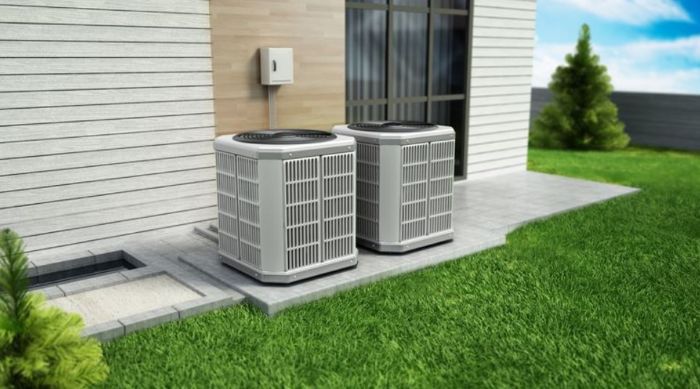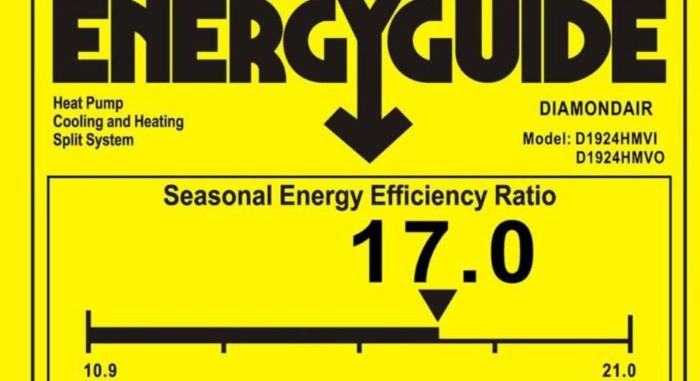How to Choose the Right HVAC System for Your Home

Are you shopping around for a new HVAC system? Selecting the right system is crucial because it can impact your home’s year-round comfort, energy costs, and indoor air quality. Given the many options available, shopping for the right system can easily overwhelm you. This guide covers the essential information you need to choose the right HVAC system for your home.
How to Choose the Right HVAC System for Your Home
There is no one-size-fits-all HVAC system. Each system is suited to different homes and locations. This guide will help you make an informed buying decision.
Step 1: Assess Your Home’s Heating or Cooling Needs
Before you shop around, always start by assessing your home’s needs. You must factor in your home’s location to ensure that the heating and cooling capabilities of your chosen HVAC system can meet your home’s requirements based on its average climate and daily temperatures.
Another factor to assess is your home’s size. Larger homes require a more robust HVAC system to ensure consistent heating and cooling. An undersized HVAC system can lead to inefficiencies or higher electric bills.
The location is also a crucial part to consider in choosing the right HVAC system. For example, Baton Rogue has a humid subtropical climate. It experiences hot and humid summers with mild winters. However, temperatures rarely drop to freezing during the winter. Therefore, cooling is a higher priority for Baton Rogue homeowners to keep their homes comfortable year-round. However, cooling units are significant from June to August wherein temperatures are hottest (averaging 80 to 90 degrees F).
In addition to the home's location and size, you must consider the construction when choosing an HVAC system. A home that is not well-insulated or has inefficient windows will require a bigger and more powerful HVAC system to meet its heating or cooling needs. Therefore, consider addressing these structural issues before shopping for a new HVAC system; otherwise, you could have higher energy bills.
If you’re unsure what HVAC system is best for your home, consult a professional HVAC technician. They can perform a detailed load calculation and recommend the best HVAC system for your home’s needs.

Step 2: Choose the Right Type of HVAC System
Most people wrongly assume that all HVAC systems are the same. When they talk about HVAC, they refer to the standard split system that consists of an air conditioner and furnace. However, there are more options available that might be better suited for your home.
The split system is suitable for most homes but is highly recommended for those with extremely hot summers and cold winters. It consists of two parts: a heater and a cooler. Both components are needed to ensure that your home is comfortable year-round.
Another type of HVAC system is a ductless split system. It is ideal for people who want to control the temperature without installing complicated ductwork in their homes. This system comprises a series of individual units placed in each room via a small duct that runs outside the home. Since it does not require extensive ductwork, the installation is simpler.
A packaged HVAC system is an ideal solution for homes in warmer climates. It is an all-in-one unit that contains heating and cooling elements. The units are installed outside, such as on a foundation slab or roof of a building. They are convenient to install but are only viable if you have existing ductwork. However, since packaged systems have a shorter lifespan, they are less prevalent in residential properties.
Finally, a geothermal HVAC system is best for homes looking for a sustainable option. It requires a higher upfront cost than other systems listed here. However, you can compensate for the higher upfront cost with its energy efficiency, which can lower your energy bills over time.
Step 3: Know Your Budget
Once you have the two critical information—your home's needs and the types of HVAC systems — to make a decision on the right HVAC system for your home, you can decide on a budget.
If you have a predetermined budget, your options will be limited based on your budget. But if you don’t have a budget, it gives you more flexibility to choose the system that fits your needs and offers maximum comfort.
The costs of HVAC systems will vary largely based on the specific type you choose. On average, they cost anywhere from $5,000 to $12,000. The ductless split system is the most affordable option, starting at $3,500 per unit. On the other hand, the geothermal HVAC system is the most expensive, at $14,500.
Your budget is a practical consideration because you must consider the upfront cost of buying and installing the unit as well as the ongoing costs of ownership.

Step 4: Choose Energy Efficiency
Choosing energy-efficient HVAC systems must be a priority for homeowners in Louisiana. As mentioned, you must consider the upfront costs of installing an HVAC unit and its ongoing costs. Energy bills are among the significant ongoing costs. It can also impact your environmental footprint.
Choose HVAC systems that are Energy Star certified, as this indicates high energy efficiency. The following are important ratings to consider when buying a new HVAC system.
SEER, or Seasonal Energy Efficiency Ratio - This refers to the system’s efficiency when using the cooling function. A higher rating means better efficiency.
AFUE, or Annual Fuel Utilization Efficiency - This refers to the system’s efficiency when using the heating function. A higher AFUE percentage means better efficiency.
EER, or Energy Efficiency Ratio - It is a rating used to determine the efficiency of an HVAC unit for homes in warmer climates or those that rely on year-round cooling.
Choosing the right HVAC system for your home is only the first step. Once the system is installed, you must not neglect it by booking regular maintenance and tune-ups. These professional services ensure that the system maintains its reliability and that any problems can be addressed before they develop into something more serious.
